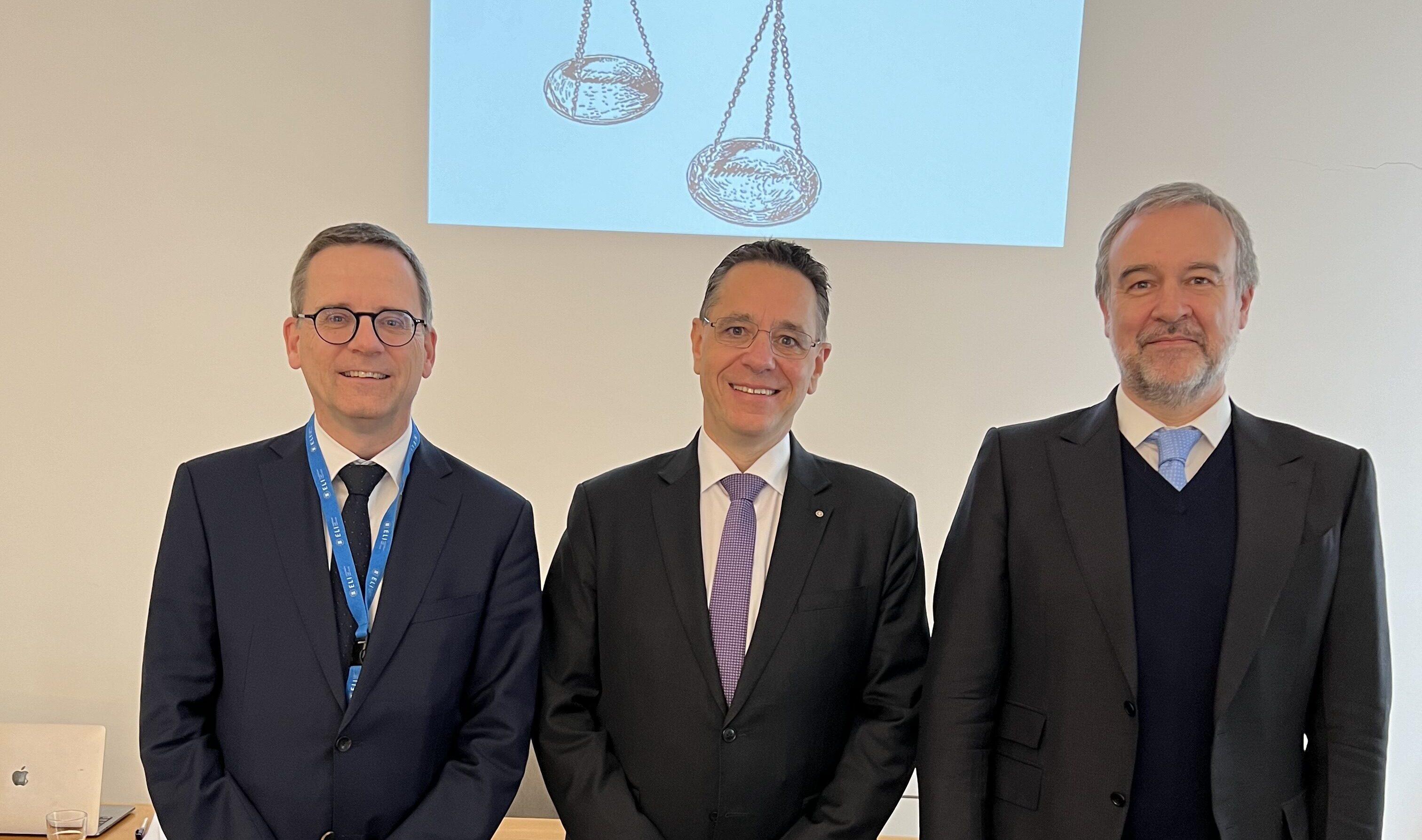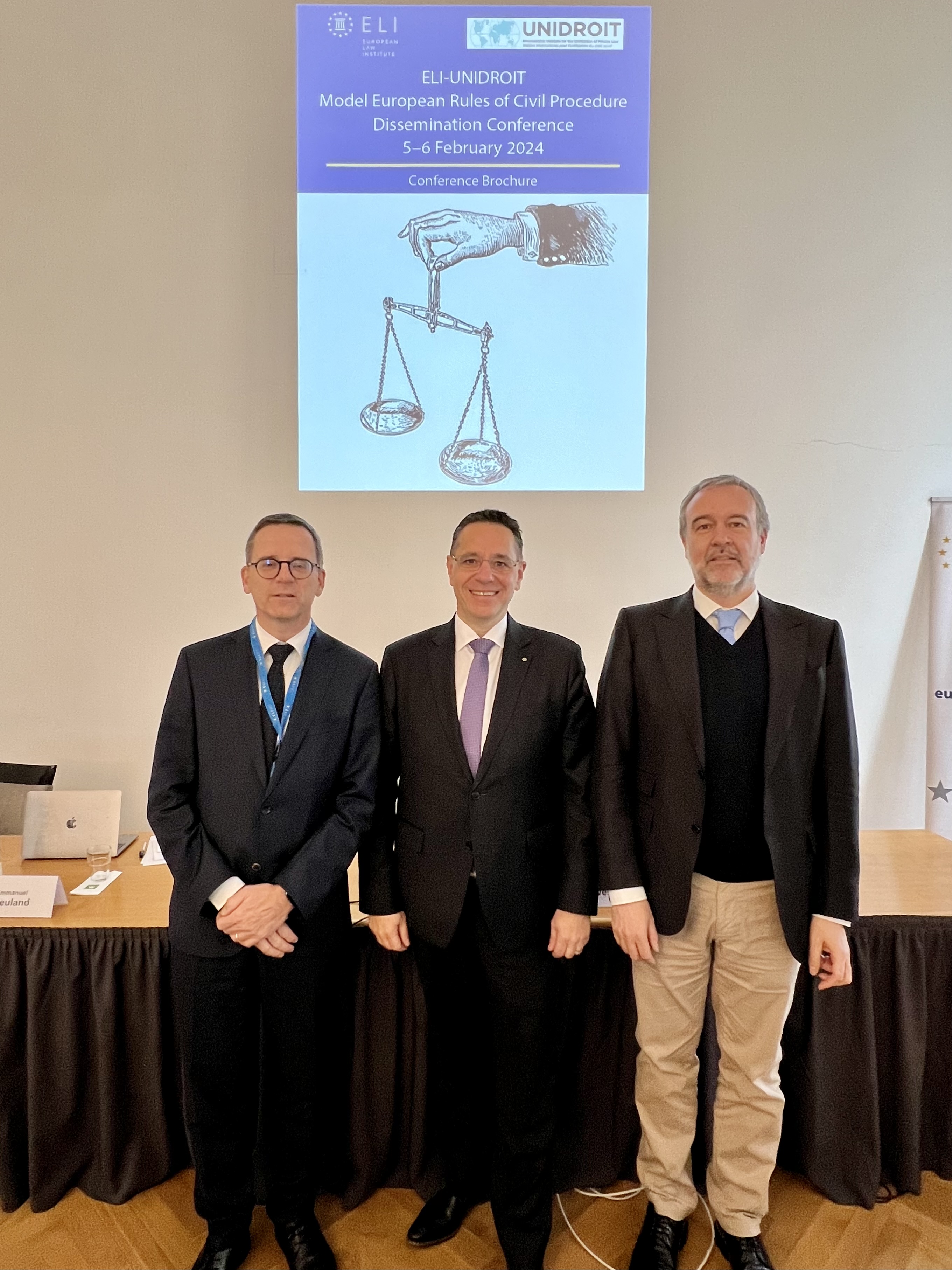Published in 2021, the ELI-UNIDROIT Model European Rules of Civil Procedure sought to adopt the ALI-UNIDROIT Principles of Transnational Civil Procedure (2004) to a European perspective. In doing so, the project aimed ultimately at reducing uncertainties for parties litigating in unfamiliar surroundings, with a view to promoting fairness in judicial proceedings.
The project was adopted in February 2014 and a total of ten Working Groups, consisting of leading experts in civil procedure law (academics, judges, and practitioners) from over 16 countries, were established. They were supported by 29 Advisory Committee members and a Members Consultative Committee of 12. Among the project‘s observers were the American Law Institute, Asociación Americana de Derecho Internacional Privado, the Association for International Arbitration, the Council of Bars and Law Societies of Europe, the Council of the Notaries of the European Union, the Court of Justice of the European Union, the European Commission, the European Network of Councils for the Judiciary, the European Parliament, the Hague Conference on Private International Law, the International Bar Association (IBA) Arbitration Committee, the IBA Litigation Committee, the International Association of Lawyers, the International Association of Procedural Law, the International Association of Young Lawyers, the International Bar Association, the International Union of Judicial Officers (UIHJ) and Max Planck Institute Luxembourg. Their insights were instrumental in shaping the outcome.
The Rules, which strike a balance between generality and specificity, constitute a frame of reference for policy makers both at European and national levels. They have been translated into French and Spanish, with Chinese, Farsi, German, Hungarian, Italian, Portuguese, Russian and Ukrainian translations being underway.
The Conference in Vienna aimed at reigniting discussion on the importance and impact that the Model Rules have had and continue to have since they were published. It provided an opportunity to present some of the most innovative features of the Rules as well as considerd future challenges and opportunities for civil procedure resulting from digitalisation.
The Conference also provided a platform for the discussion of ongoing civil procedure reforms and the impact the Model Rules have or could have on them. Finally, participants had the opportunity to reflect on the translations of the Model Rules.
The Conference was organized on 5 & 6 February 2024 and included the following panels:
- Panel I – The ELI-UNIDROIT Model Rules: An Overview
- Panel II – Enhancing Convergence: The Approach of the Model Rules to Case Management and Cooperation, and Access to Information and Evidence
- Panel III – Treading New Ground: the Approach of the Model Rules to Collective Redress, Costs, Res Judicata
- Panel IV – New Technologies in Civil Procedure and Enforcement
- Panel V – The ELI-UNIDROIT Model Rules and Current or Prospective Civil Procedure Reforms
- Panel VI – The Relevance of the Translations of the Model Rules
UIHJ was represented on that occasion by President Marc Schmitz.






